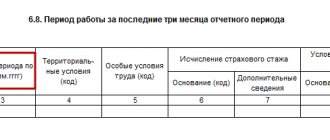The concept and role of a contract in civil circulation
Introduction
Property (civil) turnover as a legal expression of commodity-money, market economic relations consists of numerous specific acts of alienation and appropriation of property (goods) committed by owners or other legal owners. In the overwhelming majority of cases, these acts express the agreed will of the commodity owners, formalized and enshrined in the form of contracts.
Concept of contract:
- Agreement - as a coinciding expression of will (agreement) of its participants (parties), aimed at establishing or changing or terminating certain rights and obligations. From this point of view, it is a transaction - a legal fact, the main basis for the emergence of obligatory legal relations (clause 2 of Article 307 of the Civil Code). Based on this, any bilateral or multilateral transaction is considered an agreement (clause 1 of Article 154 of the Civil Code), and the corresponding rules on transactions, including their form, are applied to the contracts themselves (clause 2 of Article 420 of the Civil Code).
- The concept of a contract is applied to legal relations arising as a result of the conclusion of an agreement (transaction), since it is in them that the subjective rights and obligations of the parties to the contract exist and are realized. When, for example, we are talking about contractual relations, the execution of a contract, liability for its non-fulfillment, etc., we mean contractual obligations. Therefore, these legal relations are subject to general provisions on obligations (clause 3 of Article 420 of the Civil Code).
- A contract is often considered as a form of agreement (transaction) - a document fixing the rights and obligations of the parties. This understanding of the agreement is quite conditional, because the agreement of the parties can be formalized not only as a single document signed by all its participants (cf. Articles 158 and 434 of the Civil Code). But if such a document exists, it is always called an agreement (and in foreign economic transactions, a contract).
A contract is an agreement between two or more persons on the establishment, modification or termination of civil rights and obligations (clause 1 of Article 420 of the Civil Code).
In this sense, a contract is a type of transaction and is characterized by two main features:
- the presence of coordinated actions of the participants expressing their mutual expression of will (a feature of the agreement);
- the focus of these actions (expression of will) on establishing, changing or terminating the civil rights and obligations of the parties (which is typical for transactions).
The role of the contract in civil circulation
- Gives its participants the opportunity to freely agree on their interests and goals and determine the necessary actions to achieve them. Consequently, the contract becomes an effective way of organizing the relationship between its parties, taking into account their mutual interests.
- Gives the results of such agreement a generally binding legal force for the parties, which, if necessary, ensures its forced implementation.
The main legal (civil) effect of the contract is the emergence of a connection between its counterparties and the corresponding obligatory legal relationship.
Moreover, the terms of the agreement determine not only the final result (goal) and the content of the agreed actions of the parties for its implementation, but in many cases, especially in the field of entrepreneurial activity, also the order of their implementation.
The conclusion of an agreement and the formation of its terms, as a general rule, must be voluntary, based solely on the agreement of the parties and determined by their private interests. On this basis, one of the fundamental principles of private law regulation is formed - the principle of freedom of contract (Clause 1, Article 1, Article 421 of the Civil Code).
More details
Freedom of contract manifests itself in several different aspects:
- this is freedom in concluding an agreement and the absence of coercion to enter into contractual relations (clause 1 of Article 421 of the Civil Code) (forced conclusion of an agreement is allowed only as an exception, directly provided for either by law, for example, for public contracts in accordance with clause 3 of Article 426 Civil Code, or a voluntarily assumed obligation, for example, under a preliminary agreement in accordance with Article 429 of the Civil Code);
- freedom of contract consists in the freedom to determine the nature of the contract to be concluded (subjects of property (civil) turnover themselves decide which contract to enter into), moreover, the parties are free to enter into mixed contracts that simultaneously contain elements of various known types of contract (clause 3 of Article 421 GK);
- freedom of contract is manifested in the freedom to determine its terms (content) (clause 2 of article 1, clause 4 of article 421 of the Civil Code). The parties to the contract of their own free will determine its content and form its specific conditions, unless the content of any condition is imperatively determined by law or other legal acts. Thus, the condition on the price of the purchased goods is agreed upon by the counterparties themselves and only in some cases is determined according to tariffs, rates, etc. established by the state. (for example, when it comes to the products of “natural monopolies”).
A civil contract is an agreement between individuals and legal entities that determines the emergence, change or termination of legal relations .
In legal doctrine, a contract can be viewed from different positions, in particular (legal nature):
· as a legal fact
- in this capacity it acts as the basis for the emergence, change and termination of a legal relationship;
· as a legal relationship itself
— contractual legal relationship arising as a result of an agreement;
· like a deal
— an agreement is one of the types of transactions and is interpreted as a two- or multilateral transaction. Thus, the terms “transaction” and “agreement” relate to each other as a generic and specific concept;
· as a form of commitment
- an agreement is a document that records the act of occurrence of an obligation at the will of all its participants.
The content of the contract forms the totality of its terms, which, as a general rule, are formed at the discretion of the parties to the contract
(Article 421 of the Civil Code). Moreover, in the science of civil law, the terms of any contract are divided into three main groups:
1) essential terms of the contract - conditions without the agreement of which the contract is considered not concluded. In accordance with paragraph 1 of Art. 432 of the Civil Code, a contract is considered concluded if an agreement is reached between the parties, in the form required in appropriate cases, on all the essential terms of the contract . Such conditions include the subject of the contract, as well as conditions that are named in the law or other regulatory legal acts as essential or necessary for contracts of this type, as well as all those conditions regarding which, at the request of one of the parties, an agreement must be reached
(Clause 1 of Article 432 of the Civil Code). It should be borne in mind that the Civil Code, in relation to all civil contracts, did not establish as essential conditions the term and price of the contract. However, in many individual types of contracts, term and price act as essential terms of the contract. So, in accordance with paragraph 1 of Art. 555 of the Civil Code, if there is no condition in the contract agreed upon by the parties in writing on the price of real estate, the contract is considered not concluded;
2) ordinary terms of the contract - conditions typical for a contract of this type, provided for by law and mandatory for the parties to the contract.
As a general rule, they are determined by dispositive norms, and the parties have the right to deviate from them. Unlike essential conditions, ordinary conditions (for example, a condition on the place of execution of the contract) may or may not be included in the contract, the legal force of the contract is not lost;
3) random terms of the contract - terms agreed upon by the parties, accepted in addition to the usual terms and reflecting the peculiarities of the relationship between the parties and specific requirements for the subject of the contract, the procedure for its execution, liability for non-fulfillment
(for example, a condition on the introduction of a penalty in case of violation of the contract). Random conditions expand the content of the contract, but to give them legal force they must be included in the contract.
The terms of the agreement are subject to the general principles and specific norms of the Civil Code and other federal laws, as well as the agreement of the parties themselves. In particular, due to the principle of freedom of contract (clause 1 of article 1 and article 421 of the Civil Code), citizens and legal entities are free to enter into a contract. As a general rule, coercion into concluding an agreement is not permitted. The parties may enter into an agreement, either provided for or not provided for by law or other legal acts. They themselves determine the terms of the contract, except in cases where mandatory conditions are established by imperative norms (clause 1 of Article 422 of the Civil Code). Freedom of contract is also manifested in the right of the parties, by agreement, to exclude the application of the imperative part of the dispositive norm and to establish a condition different from that provided for in it.
The agreement can be oral, simple written or notarized. The oral form of the contract occurs when a different form is not established by law or agreement of the parties.
Article 434. Form of agreement
1. An agreement may be concluded in any form provided for transactions, unless a specific form is established by law for agreements of this type.
If the parties agreed to conclude an agreement in a certain form, it is considered concluded after giving it the agreed form, even if the law did not require such a form for contracts of this type.
2. An agreement in writing can be concluded by drawing up one document signed by the parties, as well as by exchanging documents through postal, telegraphic, teletype, telephone, electronic or other communications that make it possible to reliably establish that the document comes from a party to the agreement.
3. The written form of the agreement is considered to be complied with if the written proposal to conclude an agreement is accepted in the manner prescribed by paragraph 3 of Article 438 of this Code.
Contents of the agreement
The content of the contract as an agreement (transaction) is a set of conditions agreed upon by its parties, which establish the rights and obligations of the counterparties, which constitute the content of the contractual obligation.
In written contracts, the terms are set out in separate clauses.
In addition, various appendices and additions agreed upon by the parties, which are also included in its content as components of the agreement, may be added to the main text of the written agreement.
The terms of the agreement are divided into three groups:
- Ordinary conditions are conditions that in practice are included in the content of this agreement, however, their absence does not affect its validity. Ordinary conditions do not require agreement between the parties, as they are provided for in the relevant regulations (for example: a supply contract usually includes a provision for a penalty for non-fulfillment of the contract).
- Incidental are conditions that are not typical for a given agreement, but if the parties agreed to their inclusion in the agreement, they become legally significant. They change or supplement the usual conditions.
- Essential - conditions are considered that are necessary and sufficient when concluding a contract, as well as conditions regarding which, at the request of one of the parties, an agreement must be reached (in this case, one of the parties must directly declare the need to reach an agreement under the threat of refusal to conclude the contract) .
Contract form
Art. 434 of the Civil Code of the Russian Federation establishes that an agreement can be concluded in any form (written or oral) provided for transactions, if the law does not establish a specific form for agreements of this type.
If the parties agreed to conclude an agreement in a certain form, it is considered concluded after giving it the agreed form, even if the law did not require such a form for contracts of this type.
A written agreement may be concluded:
- by drawing up one document signed by the parties, and also
- by exchanging documents through postal, telegraphic, teletype, telephone, electronic or other communications that make it possible to reliably establish that the document comes from a party to the contract.
The written form of the agreement is considered to be complied with if the written proposal to conclude an agreement is accepted in the manner provided for in paragraph 3 of Art. 438 of the Code (full and unconditional acceptance of the offer).
Civil contract: concept, meaning, conditions.
A civil contract is an agreement between an individual (individuals) and another individual (individuals) or a legal entity (legal entities), or between a legal entity (legal entities) and another legal entity (legal entities), defining the occurrence, change or termination of legal relations.
The concept of a civil contract is defined in accordance with Article 420 of the Civil Code of the Russian Federation and implies an agreement of two or more persons to establish, change or terminate civil rights and obligations. The terms of such an agreement are determined at the discretion of the parties, except in cases where the content of the relevant condition is prescribed by law or other legal acts (Article 421 of the Civil Code of the Russian Federation).
The meaning of the contract: A civil contract gives its participants the opportunity to freely agree on their interests and goals and determine the necessary actions to achieve them. Consequently, the contract becomes an effective way of organizing the relationship between its parties, taking into account their mutual interests.
At the same time, it gives the results of such agreement a generally binding legal force for the parties, which, if necessary, ensures its forced implementation. From this point of view, the contract appears as an economic and legal category in which the economic content (the act of exchange of goods) receives the legal (civil) registration and consolidation that is objectively necessary for it.
According to content, civil law contracts are divided into:
1. Property: contracts aimed at transferring property (purchase/sale, donation, exchange, delivery);
2. contracts for the performance of work (contractor agreement);
3. contracts for the provision of services (insurance, transportation, storage).
The content of the contract as an agreement (transaction) is a set of conditions agreed upon by its parties, which establish the rights and obligations of the counterparties, which constitute the content of the contractual obligation.
In written contracts, the terms are set out in separate clauses.
In addition, various appendices and additions agreed upon by the parties, which are also included in its content as components of the agreement, may be added to the main text of the written agreement.
The terms of the agreement are divided into three groups:
1. Ordinary conditions are conditions that in practice are included in the content of this agreement, however, their absence does not affect its validity. Ordinary conditions do not require agreement between the parties, as they are provided for in the relevant regulations (for example: a supply contract usually includes a provision for a penalty for non-fulfillment of the contract).
2. Random - these are conditions that are not typical for a given agreement, but if the parties agreed to their inclusion in the agreement, they become legally significant. They change or supplement the usual conditions.
3. Essential - conditions that are necessary and sufficient when concluding an agreement are considered, as well as conditions regarding which, at the request of one of the parties, an agreement must be reached (in this case, one of the parties must directly declare the need to reach an agreement under the threat of refusal to conclude agreement).
Contents and form of a civil contract.
According to paragraph 1 of Art. 420 of the Civil Code, a contract is an agreement between two or more persons to establish, change or terminate civil rights and obligations. The terms of contracts are regulated both by the rules of civil law, common to various contracts, and by the rules on individual classes, types, types and varieties of contracts.
The contents of the contract are the conditions about the subject of the contract, defining the actions that need to be performed, the rights, obligations, procedure and deadlines for fulfilling the contract. The conditions under which the parties agree are the content of the contract.
According to their legal meaning, all conditions are divided into essential, ordinary and accidental. Conditions that are necessary and sufficient for concluding a contract are considered essential.
Ordinary conditions are the conditions provided for by law.
Random conditions are conditions that are not reflected in the rules of law, but they are regulated by the will of the parties, or are enshrined in the rules of law, but the parties regulated them at their own discretion.
Contract form
Art. 434 of the Civil Code of the Russian Federation establishes that an agreement can be concluded in any form (written or oral) provided for transactions, if the law does not establish a specific form for agreements of this type.
If the parties agreed to conclude an agreement in a certain form, it is considered concluded after giving it the agreed form, even if the law did not require such a form for contracts of this type.
28 Conclusion of a civil contract, its main stages. Conclusion of an agreement is the achievement by the parties in the proper form of an agreement on all essential terms of the agreement in the manner prescribed by law.
The contract is considered concluded if two necessary conditions are met:
1. the parties must reach an agreement on all essential terms of the contract;
2. the agreement reached by the parties in its form must comply with the requirements for this type of agreement (Article 432 of the Civil Code).
The conclusion of an agreement, based on the nature of this civil law category (agreement of the parties), involves the expression of the will of each of the parties (expression of will) and its coincidence.
Traditionally, two situations of concluding a contract are distinguished:
· between “those present”;
· between the “absent”.
In both cases, similar stages of concluding a contract can be distinguished:
1. proposal (offer);
2. its acceptance (acceptance).
However, in the first case, when the terms of the contract are developed during direct contact between the parties, the result of which is the text of the contract signed by both parties, the sequence of stages has no legal significance. Therefore, the process of concluding an agreement between those “present” does not require detailed legal regulation.
In the second case, when we are talking about concluding an agreement between “absentees”, what is meant is not the spatial distance of the parties from each other, but the time gap between the parties’ expressions of will, which requires a special legislative solution to a number of issues, in particular:
· whether the offer can be withdrawn by the party making it;
· how to assess the other party’s agreement in principle to enter into an agreement, but on slightly different terms;
· from what moment the contract is considered concluded - from the moment the notification of acceptance of the proposal is sent or upon receipt of such notification by the party that made the proposal;
· can a response to agreement with the proposal received (sent) outside the period specified in the proposal itself serve as evidence of the conclusion of the contract, etc.
Stages of concluding a contract
The procedure for concluding an agreement is that one of the parties sends the other its proposal to conclude an agreement (offer), and the other party, having received the offer, accepts the offer to enter into an agreement (clause 2 of Article 432 of the Civil Code).
Accordingly, the following stages of concluding a contract can be distinguished:
· pre-contractual contacts of the parties (negotiations);
· offer;
· consideration of the offer;
· acceptance of the offer.
At the same time, two stages: offer and acceptance of offer are mandatory for all cases of concluding a contract. The stage of pre-contractual contacts between the parties (negotiations) is optional and is used at the discretion of the parties entering into contractual relations2.
As for the stage of consideration of an offer by its addressee, it has legal significance only in cases where the legislation, in relation to certain types of contracts, establishes the period and procedure for consideration of the offer (draft contract).
An offer is understood as an offer to conclude an agreement (Article 435 of the Civil Code).
Such a proposal must meet the following mandatory requirements:
– be addressed to a specific person(s);
– be sufficiently specific;
– express the intention of the person who made it to enter into an agreement with the addressee who will accept the offer;
– contain an indication of the essential conditions on which it is proposed to conclude the contract.
The form of the offer can be very different: letter, telegram, fax
Acceptance can be expressed not only in the form of a written response (including a message by fax, telegraph and other means of communication). If the proposal to conclude an agreement was expressed in the form of a public offer.
In appropriate cases, the performance of actions to fulfill the terms of the contract specified in the offer (implicit actions) is also recognized as acceptance. This requires that such actions be completed within the time limit established for acceptance. This rule is dispositive in nature, but is important for the legal regulation of property turnover.
The law considers the actions of the party who received the offer to fulfill the terms of the contract specified in it (shipment of goods, performance of work, provision of services, etc.) as acceptance of the offer.
Silence is not considered acceptance. This rule is also formulated in the form of a presumption: otherwise is allowed if the possibility of accepting an offer by silence follows from the law, business custom or from previous business relations of the parties.
Receipt of acceptance by the person who sent the offer is evidence that the contract has been concluded. In this regard, the revocation of acceptance after its receipt by the addressee is, in fact, a unilateral refusal to fulfill contractual obligations, which, as a general rule, is not allowed (Article 310 of the Civil Code). Therefore, withdrawal of acceptance is possible only until the moment when the contract is considered concluded. In cases where the notice of revocation of acceptance precedes the acceptance itself (i.e., the acceptance has not yet been received by the person who sent the offer) or arrives simultaneously with it, the acceptance is recognized as not received (Article 439 of the Civil Code).
Main classifier
Before considering the question of what types of civil contracts exist, it is necessary to give a precise definition of this legal instrument. Such a document is a special agreement concluded in writing between individuals.
Types of civil law contracts differ in content. Highlight:
- contract of agency;
- contract;
- agreement for the provision of paid services;
- commission agreement;
- agency contract.
The first version of the document gives the employee the right to perform any work on behalf of the employer. Most often this concerns legal activities.
The second version of the contract provides for the implementation of the agreed set of works and provision of the completed volumes to the customer. After accepting the work and documenting the results, funds are transferred to the contractor.
An agreement for the provision of services for a fee is concluded when, for example, a tourist service is provided on one’s own behalf. After its completion, the performer receives the agreed amount of money.
A civil contract in the form of a commission represents the conclusion of commercial transactions on behalf of one’s employer. A set percentage of financial remuneration is awarded for this work.
An agency contract is formed when specific legal actions are provided on one's own behalf. After presenting the reporting material, the employer transfers money for the work done.







